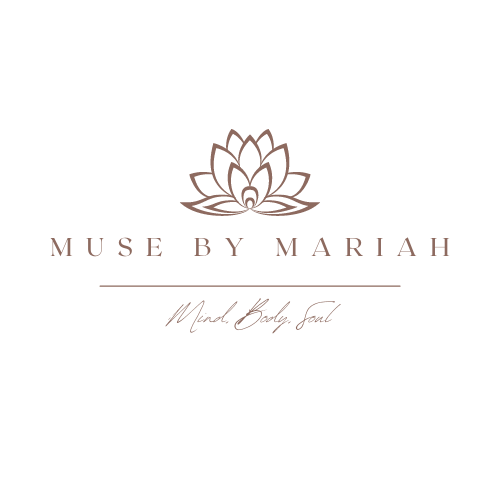Aromatherapy Using Essential Oils
What is aromatherapy?
Aromatherapy uses essential oils (concentrated extracts from flowers, plants, and other materials) or other ‘aroma’ compounds in order to improve “physical and psychological well-being”. Essential oils can be stored in any part of the plant like flowers, leaves, twigs, roots, buds, stems, or seeds. “When you use essential oils, you gain maximum benefits of the plant because its active botanical constituents, such as alkaloids, flavonoids, minerals, and phenols are directly brought to you.” I began aromatherapy to help with my anxiety and stress. I have also done research on aromatherapy for body aches and muscle pains.
One of the most common practices is using essential oils in an ‘oil diffuser’. For your oil diffuser, all you need is your essential oil and water! When using it in a diffuser, only 3-4 drops need to be added. Certain scents also have added medicinal benefits. Some essential oils are also used on parts of the body such as your hands, neck, chest, or feet to relax and calm the body (it is recommended to dilute an essential oil with another oil, such as coconut, to avoid a reaction). Essential oils can also be added to an epsom salt bath (the most commonly used scent is lavender). There are hundreds of scents to choose from and if you’re not really using it for medicinal purposes or if you want one that just smells good, there are plenty of other scents out there to keep your room smelling fresh (I love the mango or vanilla scent). Here is a list of some of the most common scents and their medicinal benefits:
There are tons of different shapes and styles of diffusers on Amazon!
Add this one to your cart now.
Benefits of Aromatherapy using an Oil Diffuser
Lavender: is the best scent to help with sleep problems, such as insomnia, because of its sedative qualities. Lavender “interacts with the neurotransmitter GABA to help quiet the brain and nervous system activity, reducing agitation, anger, aggression, and restlessness.” There have been studies done that show how lavender can help with symptoms of anxiety and depression. It also acts as a pain and muscle reliever for parts of the body (yes ladies, lavender has been proven to aid in menstrual cramps).
Eucalyptus: is known for its effects on the respiratory system. Eucalyptus oil is anti-inflammatory and helps stimulate your immune system. It may also soothe your throat and chest, and speed up healing or prevent a cold from coming. Eucalyptus contains an ingredient called cineole. In a study done with eucalyptus shows the antibacterial effects on certain bacteria that cause respiratory illnesses.
Tea tree: also called melaleuca, is known for its anti-inflammatory properties for both the skin and the hair. It also helps to boost the immune system.
Peppermint: also has anti-inflammatory properties and is known to help reduce sleep apnea symptoms. Peppermint essential oil can boost energy, clear the respiratory tract, stimulate circulation, relieve feelings of anxiety and stress, and soothe feelings of irritability (like nausea). It also helps with joint and muscle pain.
Lemon: helps to eliminate dust and germs and can freshen up a room. This scent gives you that awake and rejuvenating feeling. It can also help with signs of a cold or cough by clearing up the throat and nasal passages. Lemon scent also promotes concentration and focus so it is good to use when studying for an exam or doing work.
Clary Sage: is known for relaxing the nerves and mind of stress and anxiety. It is also a natural antidepressant. A study done in menopausal women shows how inhaling the sage scent reduced cortisol (the stress hormone) and acted as an antidepressant. Sage is also commonly used to ‘purify’ the air.
Rosemary: this scent’s primary benefit is brain function and alertness. It improves concentration and “information recall”. Research shows that inhaling the aroma of rosemary oil can help “prevent the breakdown of acetylcholine”, a chemical in the brain that is important for thinking, concentration and memory. A 2016 study found that rosemary oil may have the ability to “enhance memory due to how the aromas interact with the limbic system in the brain, after students carrying out memory tests in a room filled with the aroma of rosemary oil achieved 5% to 7% better results than those who did not take the exam with the aroma of rosemary oil.”
These are the most common scents that are used for medicinal purposes, but like I mentioned previously, there are tons of scents to choose from if you are looking for a particular scent. The essential oils I mentioned are ones I use in an oil diffuser and not applied to the body. Always do your research or consult with a doctor before using as some scents can be sensitive for some users (i.e. people with low blood pressure or even in some pets and young children).
It is also important to look for essential oils that are 100% pure without fragrance. Fragrance in essential oils are additional, unhealthy chemicals that you will be inhaling. Pure essential oils are going to be in a dark glass bottle because they can easily burn through plastic.







